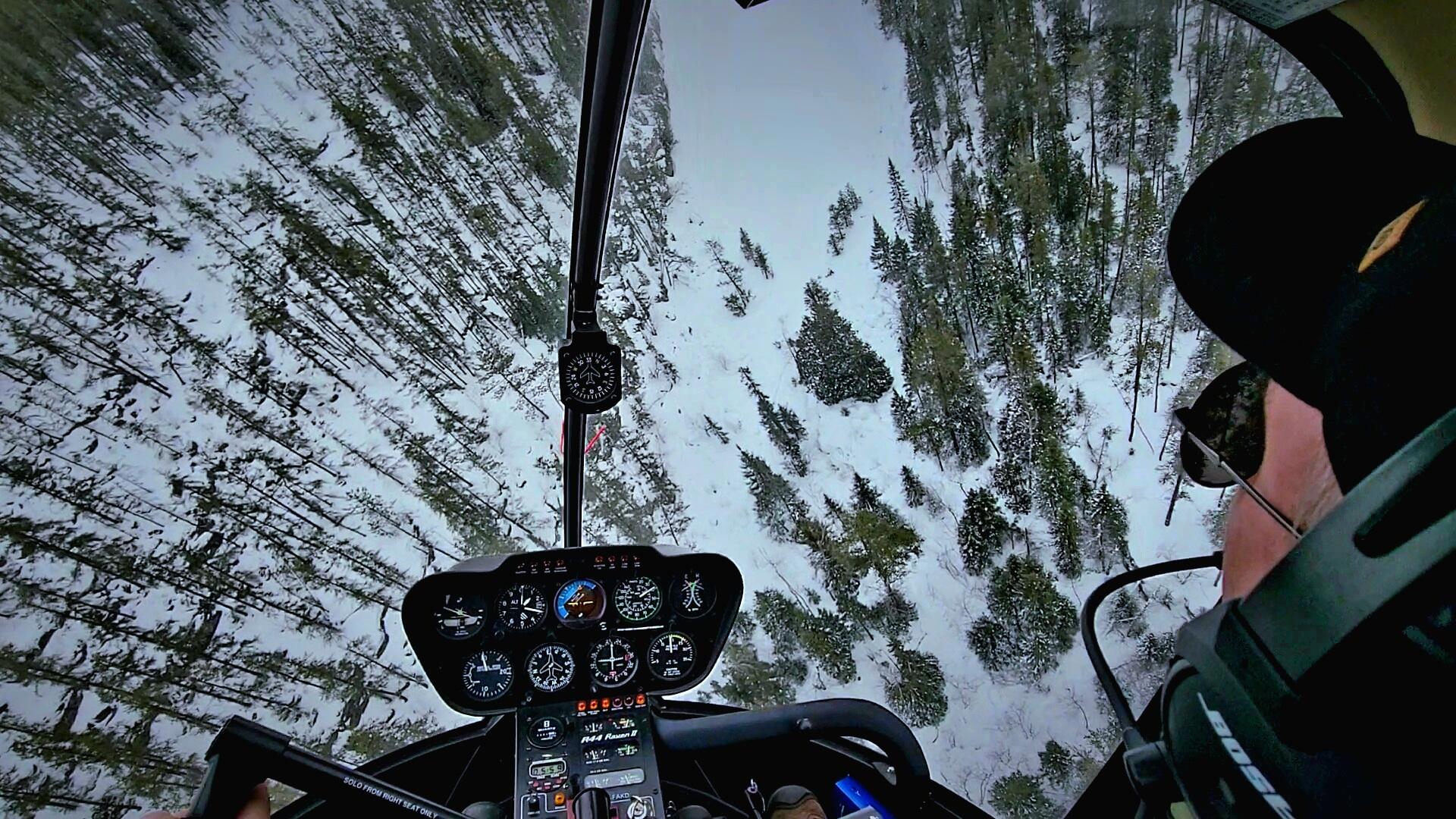Auriel Giroux, a second-year student in Conestoga's rotary Aviation program, completed a week-long winter survival training course in February to help better prepare for real-world experiences.

Second-year rotary Aviation student Auriel Giroux participated in winter survival training in February as part of the program, building skills in survival techniques and winter flying and landing methods. Photo taken and provided by Auriel Giroux.
The training is a mandatory component for all helicopter pilot training students and provides practical application of winter survival techniques, including pad building, survival fires and shelters, as well as practical use of marshalling signals and external load operations.
"Canadian helicopter pilots often spend much of their career flying in remote areas throughout our boreal forests, only accessible via helicopter," said Aviation - General Arts and Science program coordinator Emily Crombez. "They must be prepared for a forced landing due to inclement weather, a mechanical failure or another type of emergency. The helicopter will be equipped with a winter survival kit for the area and season it's flying in. By taking part in a week-long survival course, our students are immersed in a winter scenario where they learn and practice crucial outdoor survival skills."
Giroux completed the training in Elk Lake in northern Ontario with Great Lakes Helicopter pilots and students. Conestoga provides helicopter training in collaboration with the flight school.
"It was a great experience and I learned a lot," said Giroux. "The survival training helps you become a more well-rounded pilot by providing a needed understanding for emergency situations that can happen."
In addition to survival techniques, Giroux said the training included winter flying and landing methods, such as approaches to reduced visibility due to heavy snowfall and deep snow landing, as well as how to troubleshoot startup problems due to the cold weather. Temperatures during Giroux's training in Elk Lake averaged negative 25 degrees Celsius.
"Honestly, I can see myself ending up in a situation where I would need to access the skills I learned," Giroux continued. "Flying a helicopter is usually a single-pilot operation, and there is a possibility that I might get stuck in a survival situation. I know now that I'll be able to survive until someone is able to rescue me, which is nice security to have."
Giroux has been interested in an aviation career since joining the Air Cadets at 12. She chose Conestoga because the program offered both fixed-wing and rotary training. During a familiarization helicopter flight as part of the program, Giroux said she fell in love with the style of flying and knew it was what she wanted to pilot.
"Once I get my licence, I'm hoping to start flying charter to build my hours and further develop my skills," said Giroux. "When I have more experience in the industry and the hours I need, I'd like to fly for the Coast Guard in Nova Scotia or get involved in aerial firefighting. My goal, no matter what, is yes, I want to fly, but I also want to help people."
Giroux will graduate this spring with her Commercial Helicopter Licence.
Conestoga's Aviation - General Arts and Science pilot training program is the only collaborative diploma program that offers a choice between flying airplanes at Waterloo Wellington Flight Centre or flying helicopters at Great Lakes Helicopter. Through pilot training at one of the flight centres, and classes at Conestoga, students can complete a diploma in two years as well as the pilot training to allow them to undertake the Transport Canada Commercial Pilot Licence testing.
